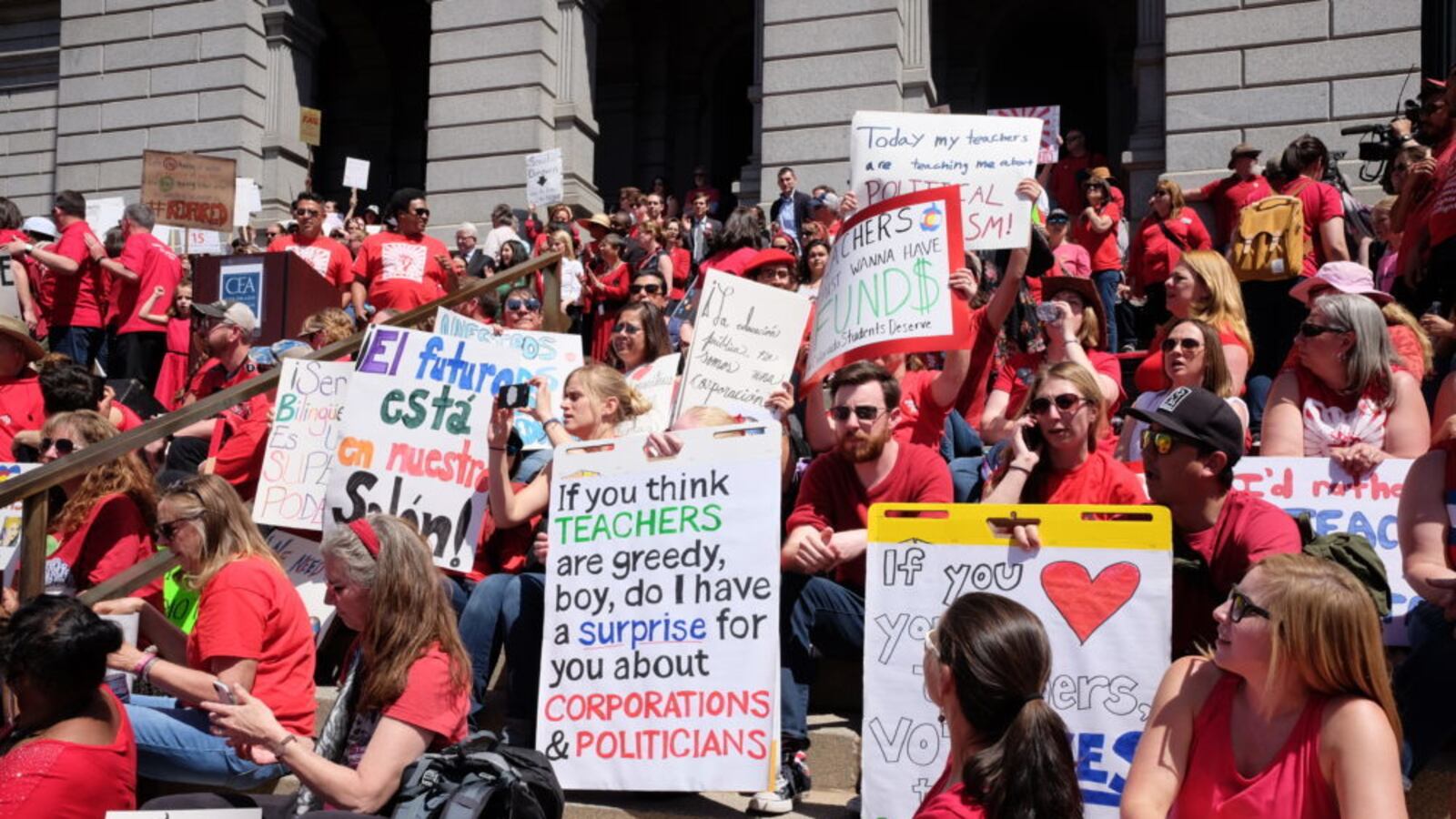Update: State Sen. Bob Gardner pulled this bill Monday, April 30, saying a lengthy hearing was not in anyone’s interest this late in the session.
Rather than punishing teachers who strike in Colorado, the Republican sponsor of a bill aimed at keeping disgruntled teachers in the classroom plans to amend his legislation to target only their unions.
State Sen. Bob Gardner of Colorado Springs introduced his bill a week before thousands of teachers were expected to arrive at the Capitol for two days of action. This isn’t the first time he’s introduced legislation to restrict the ability of public sector workers to strike, and he decided back in February, when West Virginia teachers walked off the job, that it was time to try again in Colorado.
“I think teachers are very valuable,” he said, comparing them to government workers who perform vital functions, like firefighters and snow plow drivers. “That’s why I don’t want them to strike.”
There already are limits on teachers’ ability to strike. They have to inform state regulators of their intent, and those regulators can intervene to try to broker an agreement. There’s a lengthy cooling off period before teachers can walk. Teacher strikes are relatively rare in Colorado, but when they do occur, Gardner said, “it’s been very difficult.”
The introduced version of the bill says that teachers who violate an injunction to return to work could face fines of up to $500 a day and be jailed for up to six months. They could also be fired with no right to a hearing.
The teacher backlash came fast and furious.
Colorado Education Association President Kerrie Dallman said it was “a clear attempt to limit the voices of educators who are planning to exercise their First Amendment rights and stand up for their students in the face of years of underfunding.”
Gardner doesn’t think the jail provision is as controversial as it was made out to be. Violating an injunction represents contempt of court and jail is always a possible penalty for contempt of court.
“Courts would be very reluctant to jail teachers,” he said.
Nonetheless, Gardner plans to strike that portion of the bill.
“The narrative has been captured by the union,” he said.
In both the original and the revised versions of the bill, unions that strike would face fines of up to $10,000 a day and more significantly, loss of the ability to represent teachers and collect dues for a year. Their collective bargaining agreements would be rendered null and void.
This bill, which is scheduled to be heard in a Senate committee on Monday, will not become law in any form. Democrats who control the House killed a bill earlier this year that restricted union activity by public employees, and this bill goes much further.
Senate President Kevin Grantham, a Cañon City Republican, said he’s not sure there’s enough support to even get the bill out of the Senate.
Gardner said he knows the political realities, but he believes strongly that public sector workers shouldn’t strike.
“The teachers union is in my view the most powerful lobby in this building,” he said. “They are not without a voice.”

